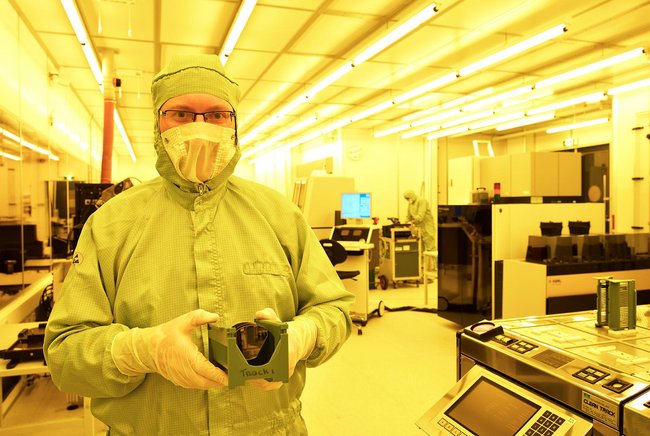PhotonDelta lands €1.1 billion to usher in a new generation of semiconductor technology
Eindhoven, Netherlands - PhotonDelta, a cross-border ecosystem of photonic chip technology organizations, has, subject to conditions*, landed €1.1 billion in public and private investment to transform the Netherlands into the leader of the next generation of semiconductors.

- Capital from the Netherland’s Ministry of Economic Affairs and Climate Policy and other organisations will be used to build 200 startups, scale up production, create new applications for photonic chips and develop infrastructure and talent
- Photonic chips enable the creation of devices that are substantially faster, cheaper to produce, and use considerably less electricity
- Development of photonic tech will tackle societal challenges such as sustainability, create a new European industry, and open the door to a huge range of new applications including quantum computing
The investment includes €470 million funding obtained through the National Growth Fund (Nationaal Groeifonds), while the rest is co-invested by various partners and stakeholders. It is part of the Dutch Government’s national plan to cement and expand the country’s position as a world leader in integrated photonics.
The program will run for six years and will enable PhotonDelta and its partners to further invest in photonic startups and scaleups, expand production and research facilities, attract and train talent, drive adoption, and develop a world-class design library. By 2030, PhotonDelta aims to have created an ecosystem with hundreds of companies, serving customers worldwide and a wafer production capacity of 100,000+ per year.
Photonics uses photons (light) to transfer information. Photonic chips, also called photonic integrated circuits (PICs), integrate photonic functions into microchips to create smaller, faster and more energy-efficient devices. PICs can process and transmit data much more effectively than their electronic counterparts. Just like with traditional chips, the production process is carried out using automatic wafer-scale technology. This allows the chips to be mass-produced, reducing costs.
Crucially, PICs can overcome the expected limit to Moore’s Law and will also help tackle energy sustainability issues. PICs are currently used in the data and telecom industry to reduce the energy consumption per bit and increase speeds. With data and internet use expected to be around 10% of global electricity consumption by 2027, PICs provide a powerful way to limit the impact on the climate. Photonic circuits will also soon play an important role for innovative sensors that can be mass-produced, leading to earlier diagnostics of diseases, safe autonomous vehicles and infrastructure, and more efficient food production.
Ewit Roos, CEO at PhotonDelta, said: “This investment is a game-changer. It will make the Netherlands the home of the next generation of semiconductors which will have a profound impact on the whole European tech industry.
“The ongoing chip shortage highlights the pressing need for Europe to create its own production capabilities for strategic technologies. We will now be able to support hundreds of startups, researchers, producers and innovators to boost this industry that will be as impactful as the introduction of microelectronics a few decades ago.
“The Netherlands is considered a pioneer in the development of PIC technology, and thanks to the continuous support from the Dutch government, we have been able to build a full supply-chain around it that is globally recognised as a hotspot for photonic integration.
“Photonic chips are one of the most important technological breakthroughs of the last decade. Not only do they allow for the creation of devices that are faster, cheaper, more powerful and greener – they also enable radical new innovations like affordable point-of-care diagnostics or quantum computing to become a reality.”
The PhotonDelta proposal has been submitted by the Dutch Ministry of Economic Affairs & Climate Policy in close collaboration with Eindhoven University of Technology (TU/e), University of Twente (UT), Delft University of Technology (TUD), Holst Centre, TNO, IMEC, PITC, CITC, OnePlanet, SMART Photonics, LioniX International, EFFECT Photonics, MantiSpectra, PhotonFirst, PHIX, and BRIGHT Photonics.
The PhotonDelta ecosystem currently consists of 26 companies, 11 technology partners and 12 R&D partners. The organisation is part of a consortium which has jointly invested €171 million in promising photonics companies including SMART Photonics, PhotonFirst, Surfix, MicroAlign, Solmates and EFFECT Photonics.
*Conditions include:
- Strategic partnership with a foundry agreed
- Research activity connected with applications of technology
- Ongoing evaluation of PhotonDelta’s ecosystem